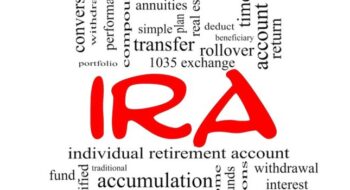Planning for retirement? Taxes can significantly impact your financial freedom. Adjusting strategies as your income changes is key. Explore these tax-saving methods:
Roth Conversion: Shift to tax-free withdrawals with a Roth IRA or 401(k) by careful planning.
Roth IRAs and Roth 401(k)s offer a unique advantage over tax-deferred retirement accounts as they allow you to contribute after-tax dollars. This means withdrawals in retirement are tax-free if certain conditions are met.
While contributions can be withdrawn tax-free at any time, withdrawing earnings without taxes and penalties requires you to be 59 1/2 and have the account open for at least five years.
Converting a traditional IRA or 401(k) to a Roth can be beneficial but requires careful planning to avoid moving into higher tax brackets. Consider converting during a low-income year to minimize taxes on the converted amount, allowing earnings to grow tax-free thereafter.
Delay Social Security: Maximize benefits by delaying and utilizing other income sources first.
Once you start receiving Social Security benefits, the amount you get could be taxed based on your income. For individuals with a combined income over $25,000 and married couples over $32,000, up to 85% of the benefit may be taxable.
Plan smart by using alternative income sources in early retirement and delaying Social Security until full retirement age for higher benefits accumulating at 8% annually until age 70. Delaying claiming until 70 allows leveraging pre-tax accounts at lower rates while earning an annual return of 8%.
Required Minimum Distributions (RMDs): Plan ahead for RMDs from traditional IRAs and 401(k)s.
Once you turn 73, you must start taking Required Minimum Distributions (RMDs) from your traditional IRAs and 401(k)s. Failure to do so could result in penalties. However, be aware that RMDs may also increase your tax liability since the withdrawn amount is subject to income taxes for the year.
Strategically planning withdrawals to remain in lower tax brackets can help minimize the taxes you owe.
State TaxEvaluation: Consider states with tax advantages for retirees when choosing your retirement location.
Leveraging state tax laws can lead to substantial savings, especially for retirees benefiting from favorable tax treatments in certain states. Some states provide exemptions on Social Security benefits and pensions.
Begin by examining taxes in your region, such as income taxes, sales tax, and property tax. Living in Alaska, Florida, Nevada, New Hampshire, South Dakota, Tennessee, Texas, Washington or Wyoming means you won’t pay state income tax. However, consider the broader picture as some states may exempt Social Security benefits but have higher taxes elsewhere.
Trust Creation: Move assets into trusts like irrevocable trusts to reduce estate and income taxes effectively.
By utilizing certain types of trusts, like an irrevocable trust, you can effectively reduce the taxable estate by transferring assets. An irrevocable trust shifts control and ownership of assets to beneficiaries, overseen by a trustee who manages them based on specified terms. Once set, the terms of an irrevocable trust are typically unchangeable.
Assets such as investments, cash, or life insurance policies can be placed in this trust. Beyond shielding assets from estate taxes, this strategy can provide income tax benefits since the trust’s generated income may be taxed differently or not directly attributed to you. Due to the intricacy of trusts, it is advisable to enlist professional assistance when establishing one according to your preferences.
Secure your retirement income by minimizing taxes smartly!
In addition to the above strategies, there are other ways to minimize taxes on retirement income.
Consider these additional tips:
- Invest in tax-efficient accounts: Look into investing in tax-efficient accounts such as municipal bonds or index funds. These can help lower your taxable income and reduce taxes on your retirement savings.
- Take advantage of deductions and credits: Make sure you are taking advantage of all available deductions and credits. This includes deductions for medical expenses, charitable donations, and mortgage interest.
- Manage your income withdrawals: Be strategic with how you withdraw money from different retirement accounts. By strategically managing your withdrawals, you can potentially lower your tax burden.
- Consult with a financial advisor: Seeking advice from a financial advisor can be beneficial in minimizing taxes on retirement income




